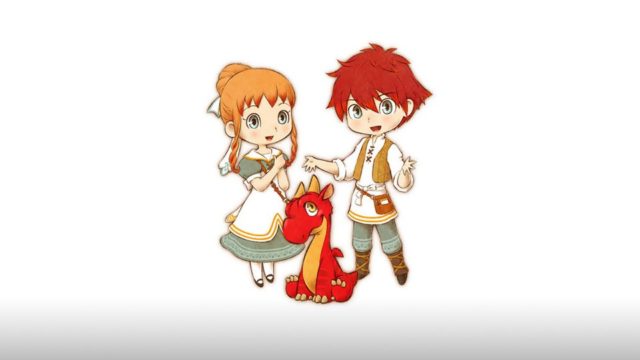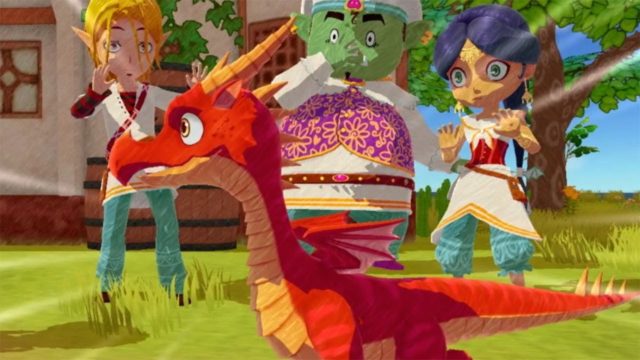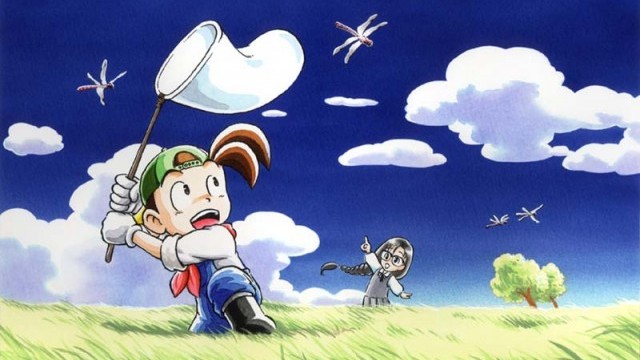
It was quite a scenic route that I found myself on as I made my way to Aksys Games’ preview of Little Dragons Café. As I walked down Fremont Street in San Francisco and approached the block of steel and glass where the event was to take place, I couldn’t help but marvel at the view of the Bay Bridge fading into the distance towards Oakland. Thoroughly inspired and freshened by the gusts of cool wind that washed over me as I entered the building, I headed upstairs. A simulation/RPG, Little Dragons Café has been garnering quite a bit of buzz and I was eager to give it a spin. I was perhaps more excited, however, to meet its creator: Yasuhiro Wada.
Wada’s name should be familiar to Nintendo fans, as he’s the brain behind Harvest Moon, one of the most beloved series in all of video games. While he’s helmed or been involved in the creation of multiple installments of Harvest Moon, he’s also brought other games to life like Hometown Story, Happy Birthdays (which just recently hit Switch), and the forthcoming Little Dragons Café. It was personally very exciting to meet Wada because I’ve long been a huge fan of his work. Harvest Moon 64, in particular, had a profound impact on me in my youth because it was the first time I’d played a video game that showed me the true breadth that the industry is capable of.
Once inside the suite where the preview was taking place, I introduced myself to Wada and Akibo Shieh, the founder and CEO of Aksys Games. Shieh acted as translator during the meeting, but in truth, it wasn’t long before it was just the three of us having a pleasant chat. To start, I asked Wada what inspired him to create Little Dragons Café. He replied that it was thanks to a meeting between himself and original Harvest Moon artist Igusa Matsuyama. The duo meet up every New Year’s to say hi and catch up with one another, and the idea for Little Dragons Café came to them then. Matsuyama had some great ideas for the look of the game, ideas that have fed directly into Little Dragons Café‘s delightful hand drawn aesthetic.
Wada went on to say that unlike many of his previous works, Little Dragons Café began life differently in that the story came before the game mechanics. Generally Wada will develop the system for a game and then create story elements that attach to it. In this case, Little Dragons Café as a narrative is what came from his mind first. I noted to Wada that it’s fascinating how story is secondary in his typical design process because, ultimately, it’s the narrative of his games that become a big part of the experience for me. Harvest Moon 64, for example, has a simple setup that propels the main character forward, but all of the side stories that unfurl throughout the adventure really stuck in my mind as a player, and still do to this day.

That led me to my next question, which was what draws Wada so much to games about life. Harvest Moon is focused on simulating a facsimile of life as a farmer, while Happy Birthdays was all about building life from the primordial ooze up to human beings. Wada replied that for him, the goal is to highlight the connectivity between living things. Even in Little Dragons Café, which has a mix of fantastical and human characters, the hope is to demonstrate that we’re all interrelated, that the bonds which tie us together are so important. I pointed out to Wada that Little Dragons Café is unique amongst his creations in that it embraces fantasy elements perhaps more than anything else he’s made before. He agreed, saying that he was particularly excited to highlight a dragon in a positive light, as they’re so often depicted as villainous (he’s a big fan of dragons).
At this point in the conversation Wada talked about presenting the game concept for Little Dragons Café to Shieh, who apparently only took one minute to convince! Wada’s presentation booklet apparently was very enticing, to say nothing of the concept itself. Little Dragons Café mixes the simulation elements of Harvest Moon, including farming and fishing, with running a business and trying to raise the aforementioned dragon, all in the hopes of saving the main characters’ mother. There’s a lot going on in Little Dragons Café, but the joy is in managing it all and watching the story unfurl.

I said to Shieh that I admired Aksys for taking a risk on a decidedly single-player experience when we’re living in a time when the video game industry is so focused on online multiplayer. While I certainly don’t object to multiplayer gaming, the fixation on eSports and competition is the greatest it’s ever been and shows no signs of diminishing. Wada interjected and pointed out that the reason he wanted to make a single-player game was specifically because of the lack of competition. To him, a game like Little Dragons Café can be played by more people, as a result. Shieh agreed, and the three of us talked back and forth about the nature of online gaming and how, at its core, there are always going to be factors that prevent more people from playing those titles than single-player ones. After all, ultimately multiplayer games require adequate skill to compete, a desire to compete on the part of the player, and even the means to engage in competition— money and a reliable Internet connection.
Games like Little Dragons Café, meanwhile, ask only for the player to hit the power button on the console. It’s an experience, a snippet of time within a world removed from the player’s own that takes them somewhere else entirely. Wada said that he hopes that players who experience Little Dragons Café will walk away from it having been happy to have traipsed through its world and gotten to know its inhabitants and their stories. To Wada, he feels like it’s a miracle when players stumble across one of his games because there are so many out there for people to choose from. Shieh believes wholeheartedly in Little Dragons Café because he feels that the simplicity of the concept and the quality of its execution will help ensure that, hopefully, many of those miraculous encounters happen. Based on my time with the game, I too have every confidence that they will.

One thing that I said to Wada which I’d like to share with you all was my appreciation for what he has contributed to the video game industry. All the way into early adulthood, I never really branched out as a gamer. I played titles like Super Mario Bros. and Zelda and not a lot else. When Harvest Moon 64 launched almost twenty years ago now, it opened my eyes to the notion that video games could be about anything. My dad would drop my sister and me off at our grandma’s house for summer vacation every day, and that year was dominated by Harvest Moon 64. We’d arrive around seven in the morning and play throughout the day until seven or eight at night. It was mesmerizing stepping into the virtual world that Wada helped create, forming relationships with the characters, getting married, growing the farm, and taking part in all the other different activities that the game had to offer. All these years later, Wada continues to provide opportunities to get lost in the small, digital playgrounds he creates, and I’m grateful that he and Shieh both took the time to talk with me.
Come back next week for my thoughts on Little Dragons Café after I got to sit and play the game. In the meantime, let us know down in the comments or on social media what you think about what Wada and Shieh had to say!




 ShareThis
ShareThis





